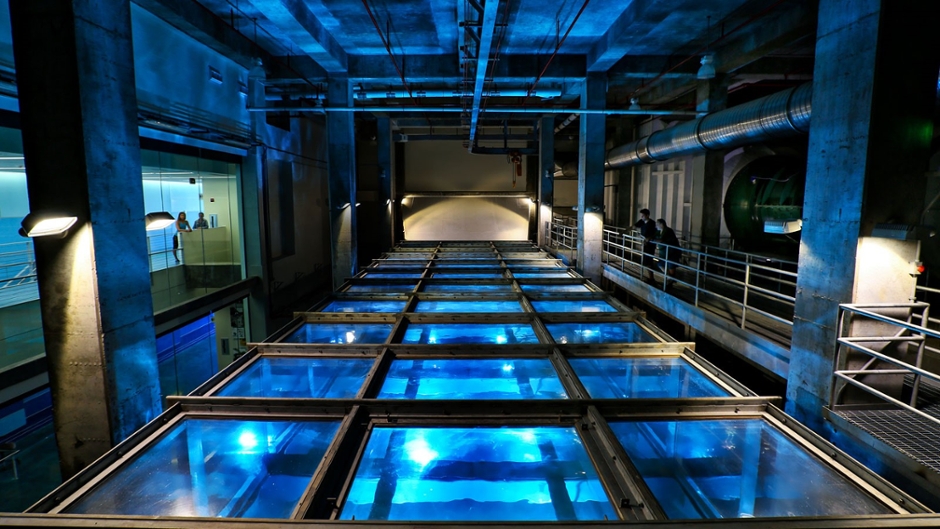The National Oceanic and Atmospheric Administration (NOAA) awarded the Cooperative Institute for Marine and Atmospheric Studies (CIMAS) up to $125 million to fund the consortium’s activities over the next five years. CIMAS, which is based at the University of Miami (UM) Rosenstiel School of Marine and Atmospheric Science, brings together the research and educational resources of ten partner universities to increase scientific understanding of Earth’s oceans and atmosphere within the context of NOAA’s mission.
The renewal award, and increase in funding, was based upon an “Outstanding” rating CIMAS received during the current award period’s performance review (2010-2015) by a NOAA Science Advisory Board subcommittee. Under the new cooperative agreement, Florida Institute of Technology (FIT) has joined the Florida and Caribbean-based university consortium, which includes: Florida Atlantic University, Florida International University, Florida State University, Nova Southeastern University, University of Puerto Rico, University of Florida, University of South Florida and University of the Virgin Islands.
“CIMAS has rapidly grown in recent years and now serves a much broader NOAA community in addressing NOAA’s climate, weather and ecosystem goals,” said Peter Ortner, CIMAS director and research professor at the UM Rosenstiel School.
The cooperative institute’s current research priorities, which include: improved hurricane forecasting, facilitating the implementation of ecosystem-based ocean management, prediction of climate on increasingly short time scales and support of the Global Ocean Observing System, are expected to continue over the next five years.
Unique new research facilities now available to NOAA through CIMAS, include the UM Rosenstiel School’s SUrge STructure Atmosphere INteraction (SUSTAIN) facility capable of simulating 3D wind-wave flow and surge produced by category 5 hurricane force winds and Nova Southeastern University’s Center of Excellence for Coral Reef Ecosystems Research.
The renewed partnership allows investigators from UM and partner institutions to receive NOAA, as well as other federal agency, support for research projects, and facilitates collaboration with NOAA scientists at NOAA’s Atlantic Oceanographic and Meteorological Laboratory, National Hurricane Center, Southeast Fisheries Science Center, as well as other NOAA facilities and Cooperative Institutes nationwide. NOAA currently supports 16 Cooperative Institutes that promote research, education, training and outreach aligned with its mission and promotes the involvement of students and post-doctoral scientists in NOAA-funded research.
# # #
About NOAA
NOAA’s mission is to understand and predict changes in the Earth's environment, from the depths of the ocean to the surface of the sun, and to conserve and manage our coastal and marine resources. Visit us athttp://noaa.gov or on Facebook at https://www.facebook.com/NOAA.
About the University of Miami’s Rosenstiel School
The University of Miami is one of the largest private research institutions in the southeastern United States. The University’s mission is to provide quality education, attract and retain outstanding students, support the faculty and their research, and build an endowment for University initiatives. Founded in the 1940’s, the Rosenstiel School of Marine & Atmospheric Science has grown into one of the world’s premier marine and atmospheric research institutions. Offering dynamic interdisciplinary academics, the Rosenstiel School is dedicated to helping communities to better understand the planet, participating in the establishment of environmental policies, and aiding in the improvement of society and quality of life. For more information, visit: www.rsmas.miami.edu.

